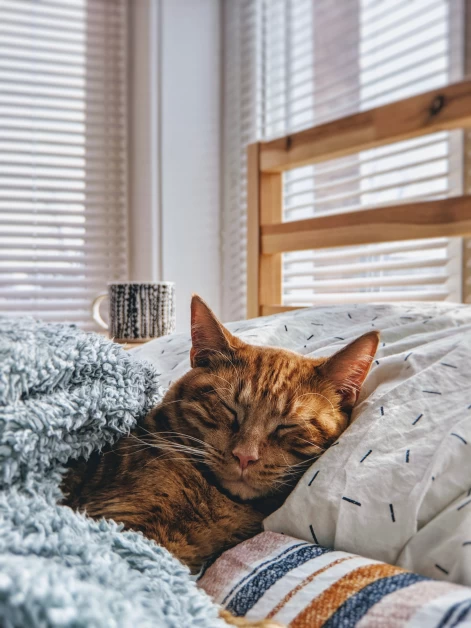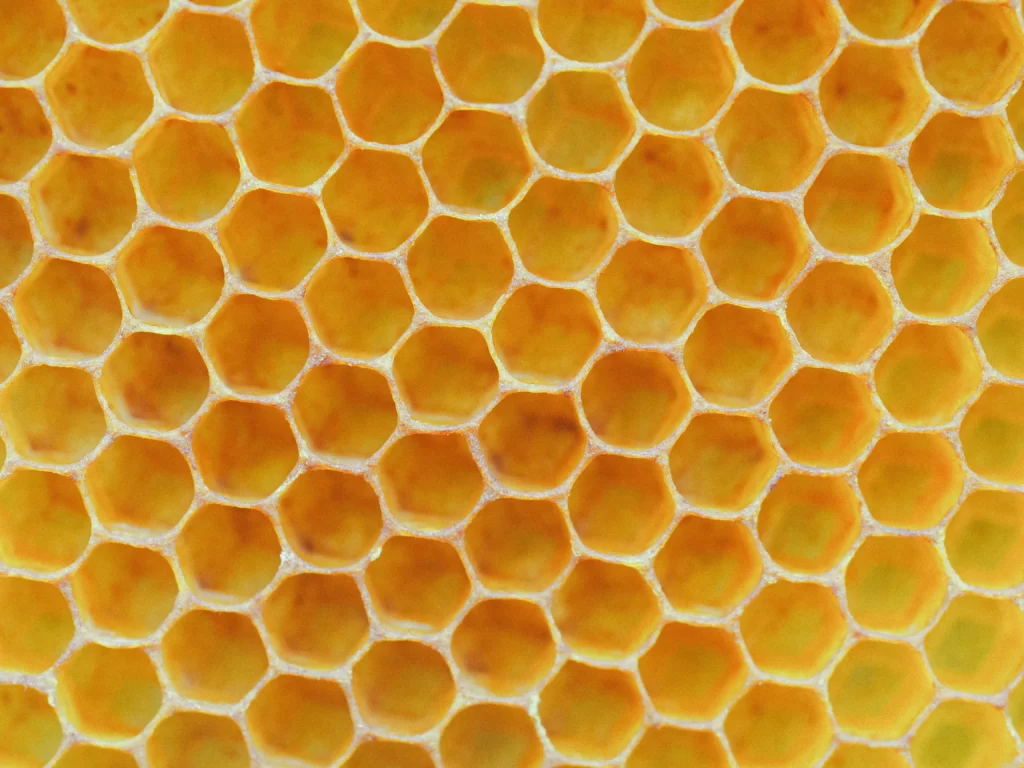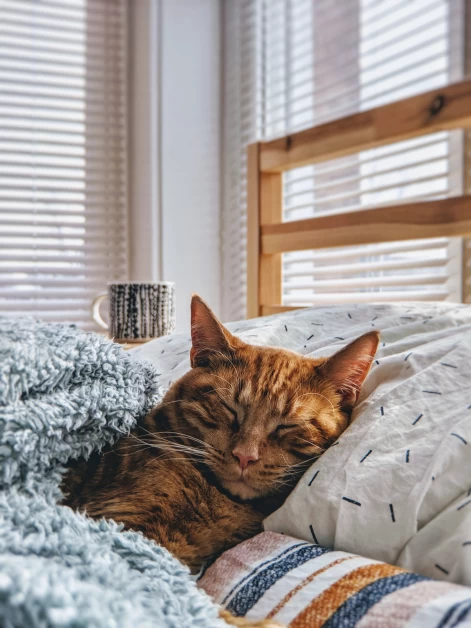Table of Contents
Introduction
Cats have a unique genetic difference that affects their ability to taste sweetness, making it unlikely that they can enjoy honey as humans do. In addition to this genetic difference, there are also health risks associated with feeding honey to cats. This article will explore the science behind feline taste buds, the nutritional value of honey for cats, the risks involved in feeding honey to cats, and provide alternative treats that are more suitable for feline companions.
The Science Behind Feline Taste Buds
Cats are obligate carnivores, which means they rely solely on animal protein for sustenance. As a result, their taste buds have evolved differently from humans. Cats lack an essential gene called Tas1r2, which is responsible for detecting sweet tastes. While humans have around 9,000 taste buds capable of tasting various flavors like sweet, sour, salty, and bitter, cats only have about 470 taste buds.
How The Carnivorous Nature of Cats Affect Their Sense of Taste
- Amino acids: Cats can taste amino acids, which are crucial components of proteins found in meat sources.
- Tasting bitterness: Cats are more sensitive to bitter compounds, which is believed to be related to their need to avoid toxic plants while hunting prey.
- Inability to taste sweetness: Cats do not require carbohydrates for energy production like omnivores or herbivores do, so they never developed the ability to detect sweet tastes through evolution.
Considering these factors, it becomes clear that cats’ taste buds are specifically designed for their carnivorous diet and not for enjoying sweet treats like honey. While cats can eat honey, it is not a necessary part of their diet and should be given in moderation.
Honey’s Nutritional Value for Cats
As obligate carnivores, cats require a diet primarily consisting of animal protein. Honey does not provide significant nutritional benefits to support a cat’s dietary needs and may even lead to health problems if consumed in large quantities. Let’s explore the essential nutrients in a cat’s natural diet and discuss potential risks associated with feeding honey to cats.
Essential Nutrients Found in a Cat’s Natural Diet
- Amino acids: Cats need various amino acids, such as taurine, which are abundant in meat-based proteins but lacking in honey.
- Fatty acids: Essential fatty acids like arachidonic acid are crucial for maintaining healthy skin and coat conditions. These cannot be obtained from honey.
- Vitamins & minerals: Cats require specific vitamins (like vitamin A) and minerals that can only be sourced from animal products rather than plant-based foods like honey.
Potential Risks Associated with Feeding Honey to Cats
Feeding your cat honey could cause several issues due to their inability to taste sweetness or properly digest sugars. Some possible concerns include:
- Feline diabetes: Cats lack an enzyme necessary for regulating blood sugar levels, so consuming excess sugar through honey might increase the risk of developing diabetes.
- Obesity: Honey is high in calories and can contribute to weight gain and obesity-related health problems if fed to cats in excess.
- Allergic reactions & digestive issues: Some cats might be allergic or sensitive to specific components of honey, causing adverse reactions like vomiting or diarrhea.
- Botulism: Although rare, honey can contain harmful bacteria like Clostridium botulinum spores, which can cause serious health issues in cats.
Given these potential risks, it is best to avoid giving honey as a treat for your cat. Instead, consider offering them cat-friendly alternatives that cater to their dietary needs.
Blood Sugar Regulation in Cats
Cats lack an enzyme called glucokinase, which is crucial for regulating blood sugar levels. Without this enzyme, cats have difficulty metabolizing the sugars in honey, which could lead to irregular blood sugar levels. Feeding your cat honey could cause various health issues, such as diabetes or obesity.
The Role of Glucokinase in Controlling Blood Sugar Levels
Glucokinase helps break down glucose and maintain stable blood sugar levels. In humans and other animals, this enzyme converts excess glucose into glycogen for storage when needed later on. However, cats’ bodies are not designed to handle high amounts of carbohydrates like those found in honey due to their carnivorous nature.
Health Risks Related to Unregulated Blood Sugar Consumption
- Diabetes: Prolonged exposure to high amounts of sugar can lead cats to develop feline diabetes, which requires lifelong treatment and monitoring by veterinarians.
- Obesity: Excess calories from sweet treats like honey can contribute to weight gain, increasing the risk of obesity-related health problems in cats.
- Digestive Issues: Honey may disrupt your cat’s digestive system since they are not accustomed to processing large quantities of sugars.
Providing a nutritious diet for your cat is essential for their well-being. Focus on proteins and avoid unnecessary sugar to promote their overall health and longevity.
Toxicity Concerns with Bees and Honey
While honey itself is not toxic to cats, it is important to be aware that some bees produce toxic honey. This type of honey contains compounds that can be harmful when ingested by animals like cats. Since cats cannot taste sweetness or detect the presence of these toxins through their taste buds, they are at risk if exposed unknowingly.
Types of Toxic Substances Found in Honey
- Grayanotoxins: These toxins are found in certain kinds of honey from nectar collected from plants like rhododendrons. Grayanotoxins may lead to symptoms such as nausea, lightheadedness, and even cardiac issues in both people and animals.
- Harmful bacteria: Raw or unprocessed honey may contain harmful bacteria like Clostridium botulinum spores, which can lead to serious health issues for your cat.
Symptoms and Dangers Posed by Consuming Toxic Honey
If your cat accidentally consumes toxic honey, you might observe symptoms such as drooling, difficulty breathing, weakness or lethargy, vomiting, or diarrhea. Severe grayanotoxin poisoning can even cause seizures, comas, or death.
If you suspect your cat has consumed toxic honey or is displaying any concerning symptoms after eating any human food product, including raw manuka honey, contact a veterinarian immediately for advice and treatment.
Alternative Treats for Your Feline Friend
While sharing human food treats like honey with your furry companion might be tempting, there are healthier alternatives specifically designed for feline dietary requirements. Consider these cat-friendly treat options:
- Commercial cat treats: These treats are specially formulated to meet the nutritional needs of cats while providing a tasty snack. Look for high-quality ingredients and avoid those containing artificial additives or excessive sugar.
- Fresh meat: Small pieces of cooked chicken, turkey, or fish can serve as a delicious treat that provides essential amino acids and protein required by your cat’s digestive system.
- Catnip: Although not technically a “treat,” many cats enjoy the stimulating effects of catnip. Sprinkle some on their favorite toy or scratching post for added enjoyment.
Tips for Selecting the Best Treats for Your Cat’s Health
- Avoid feeding honey-roasted peanuts, as they contain sweeteners that may harm diabetic cats.
- If you’re considering giving raw manuka honey or unprocessed honey to help soothe sore throats in healthy cats, consult with your veterinarian first to ensure it is safe and appropriate for your specific pet’s needs.
- Moderation is vital when offering any treat; overindulging can lead to obesity and other health issues in cats. Remember that cats cannot taste sweetness but may still crave attention from their humans.
Conclusion
In conclusion, cats cannot taste sweetness like humans can due to a genetic difference in their taste buds. Feeding cats honey poses health risks and lacks the essential nutrients they need in their diet. It is best to avoid giving honey as a treat to your cat and instead offer them cat-friendly alternatives that cater to their dietary needs. Remember to consult with a veterinarian before introducing any new foods into your cat’s diet and prioritize their overall well-being and longevity.



